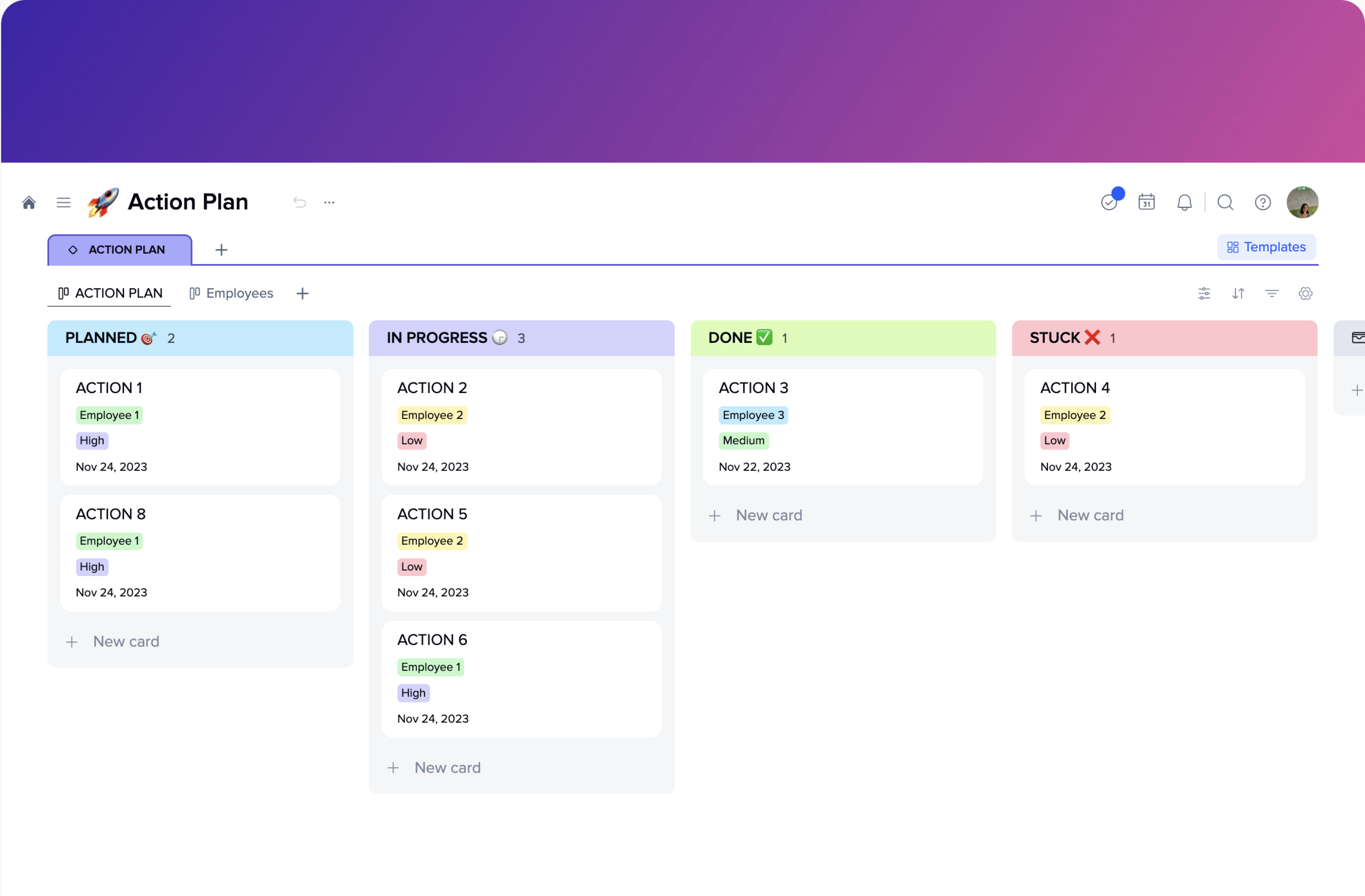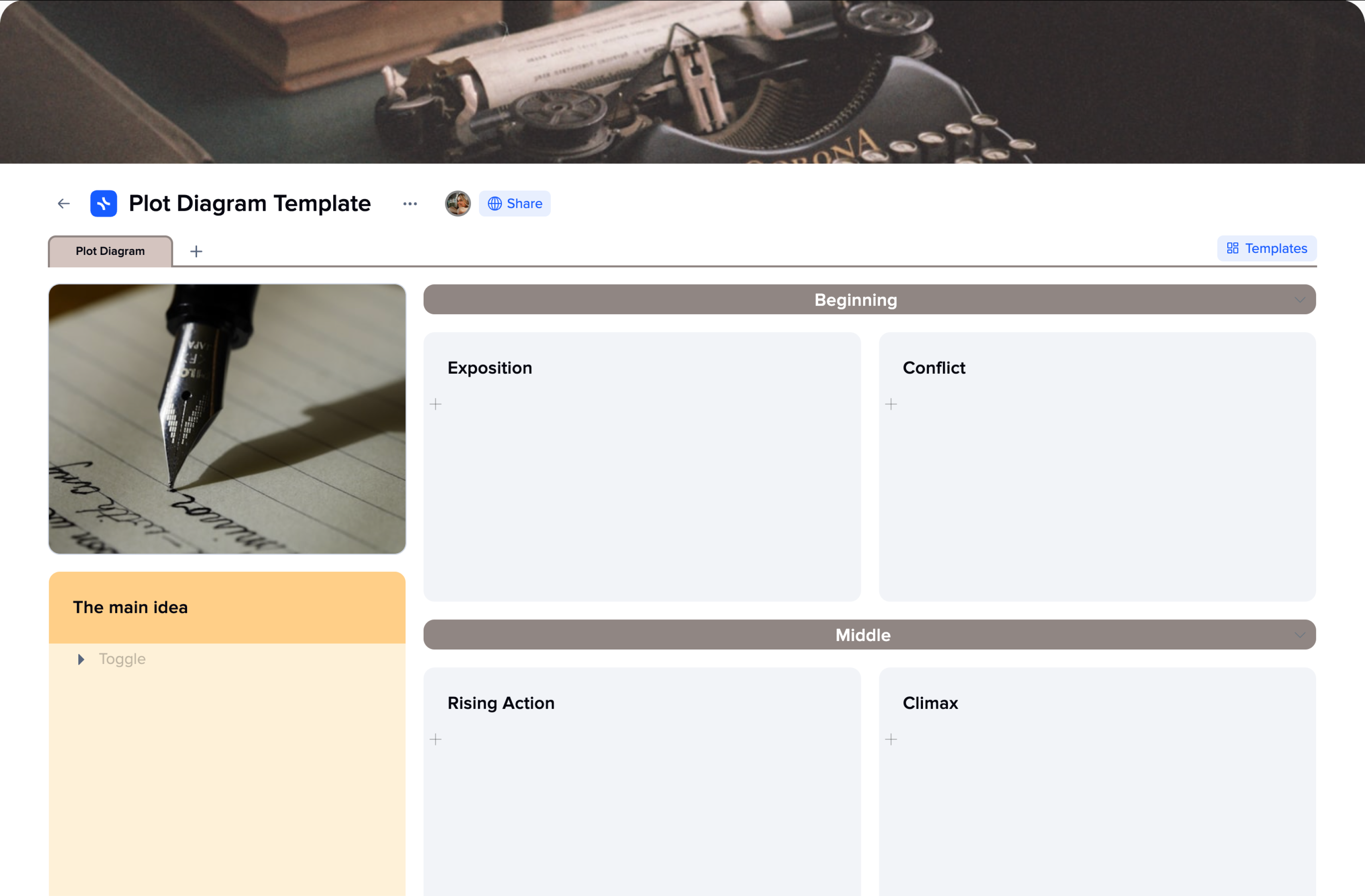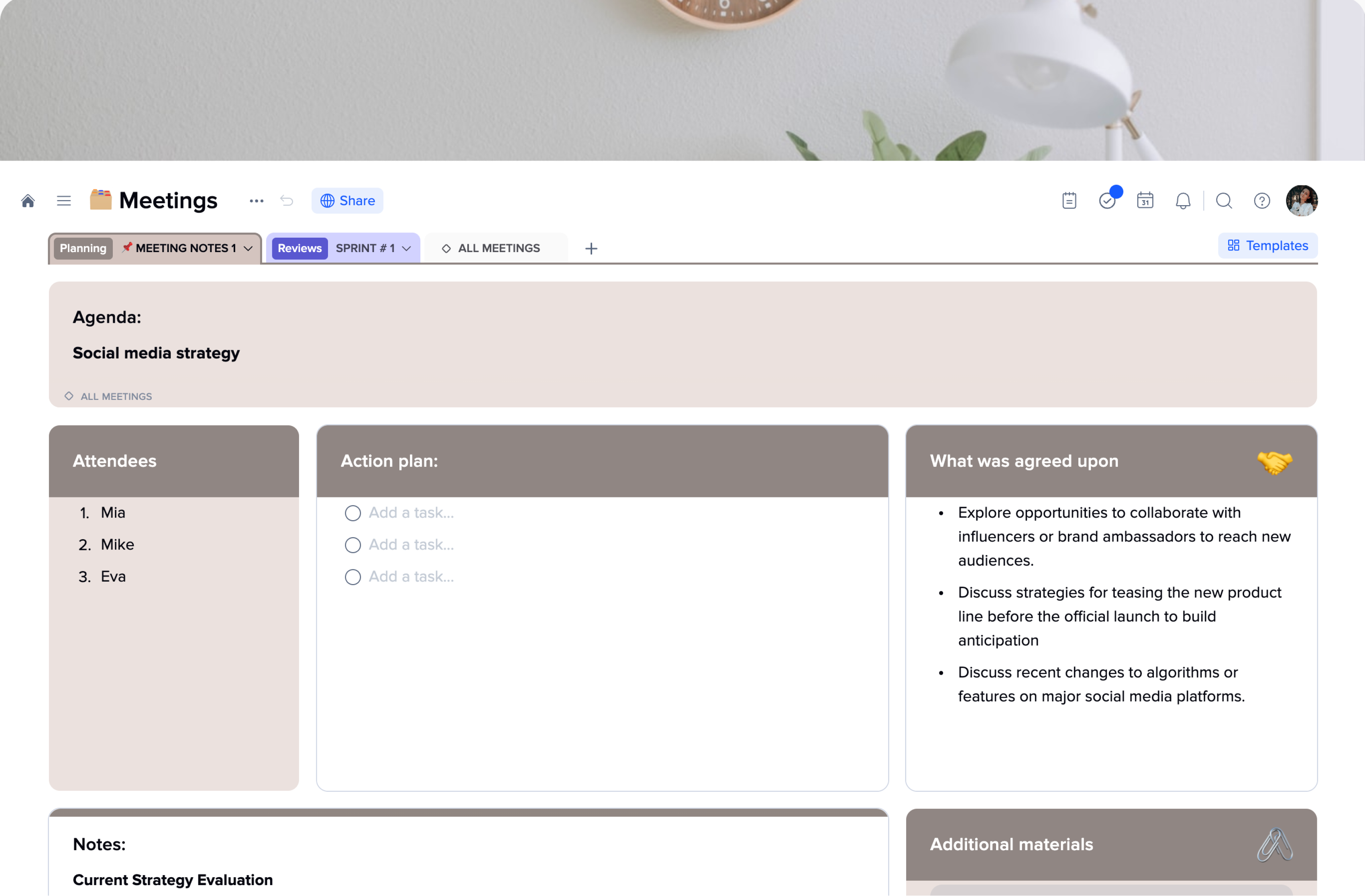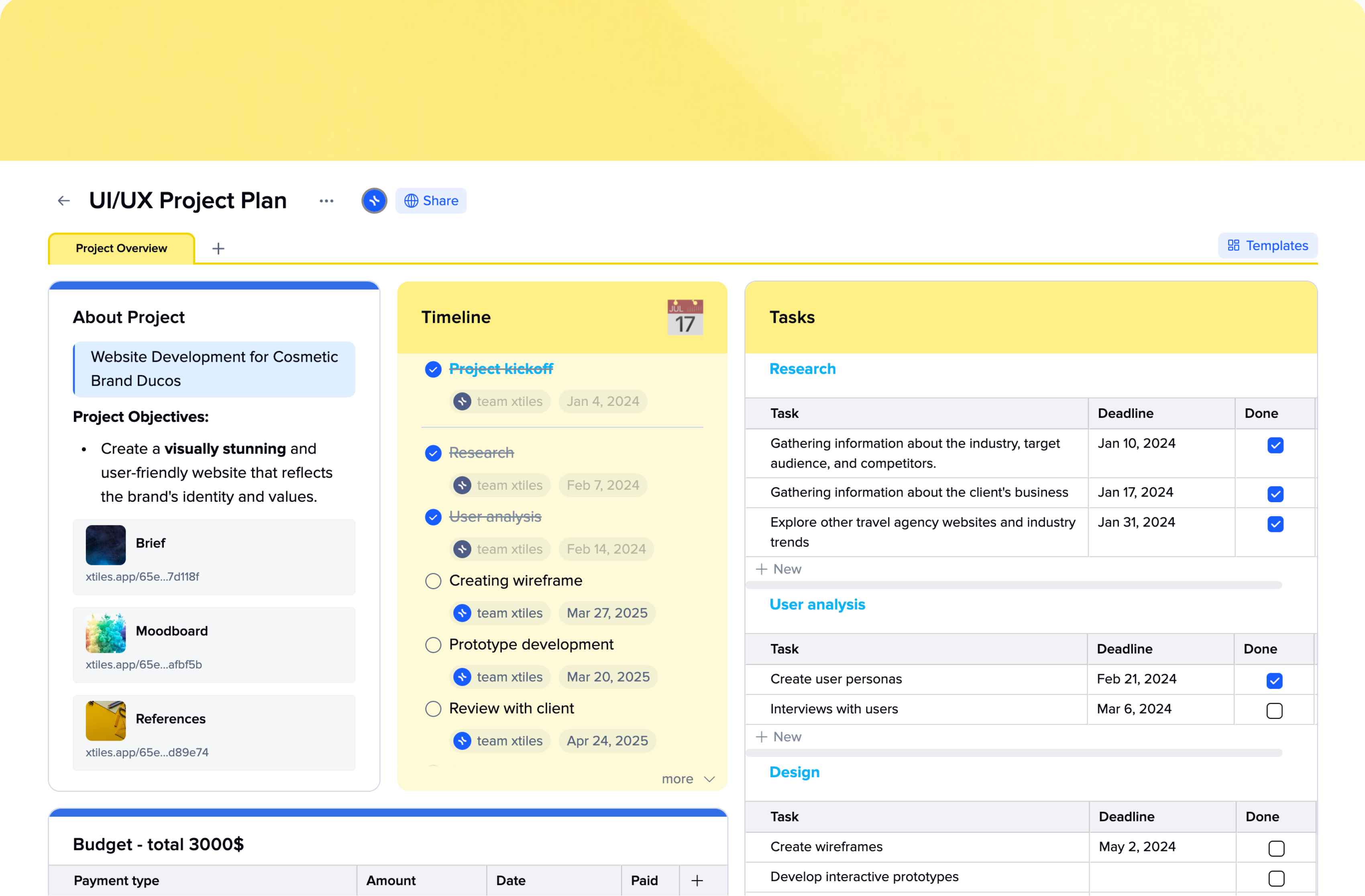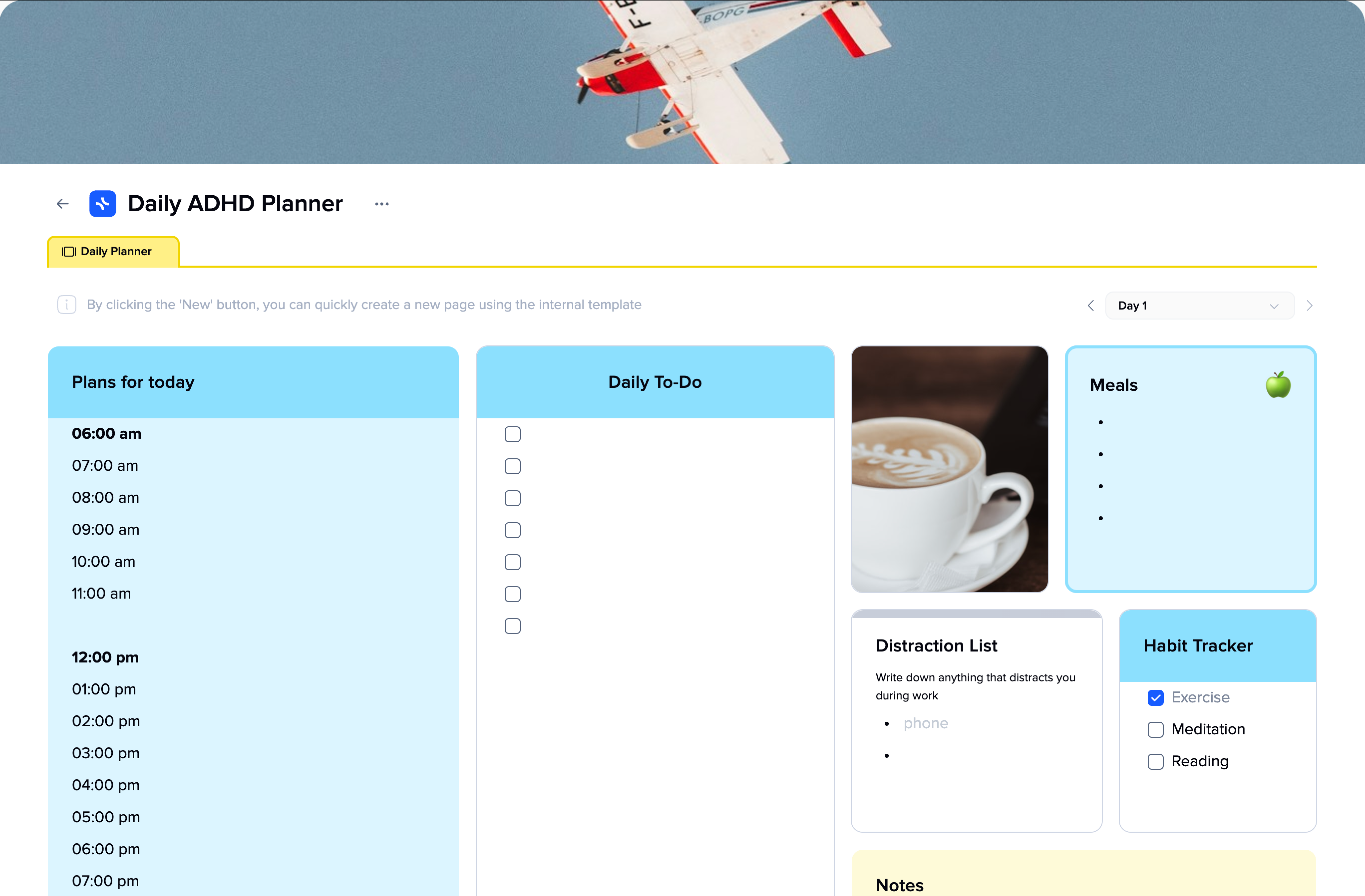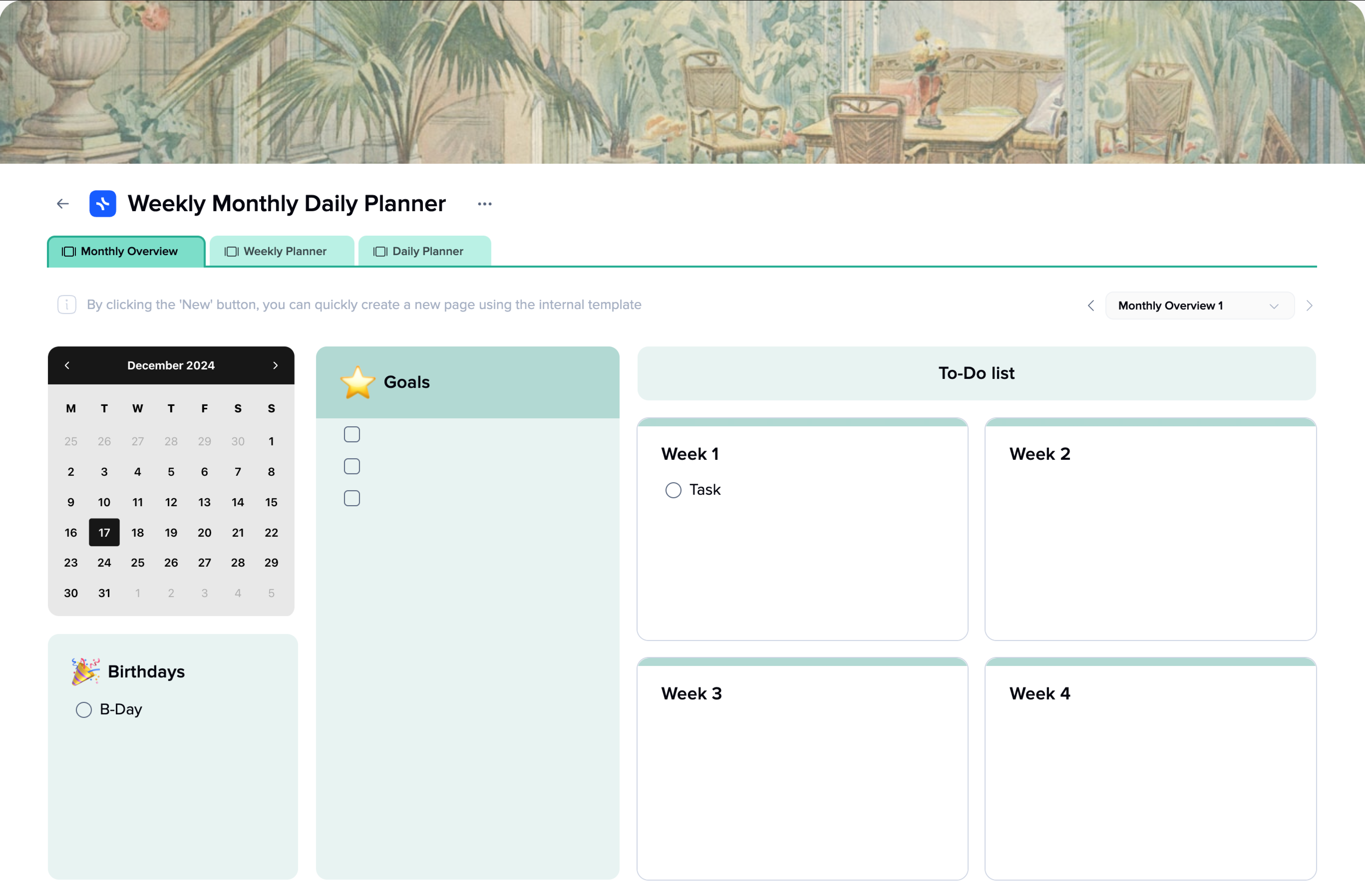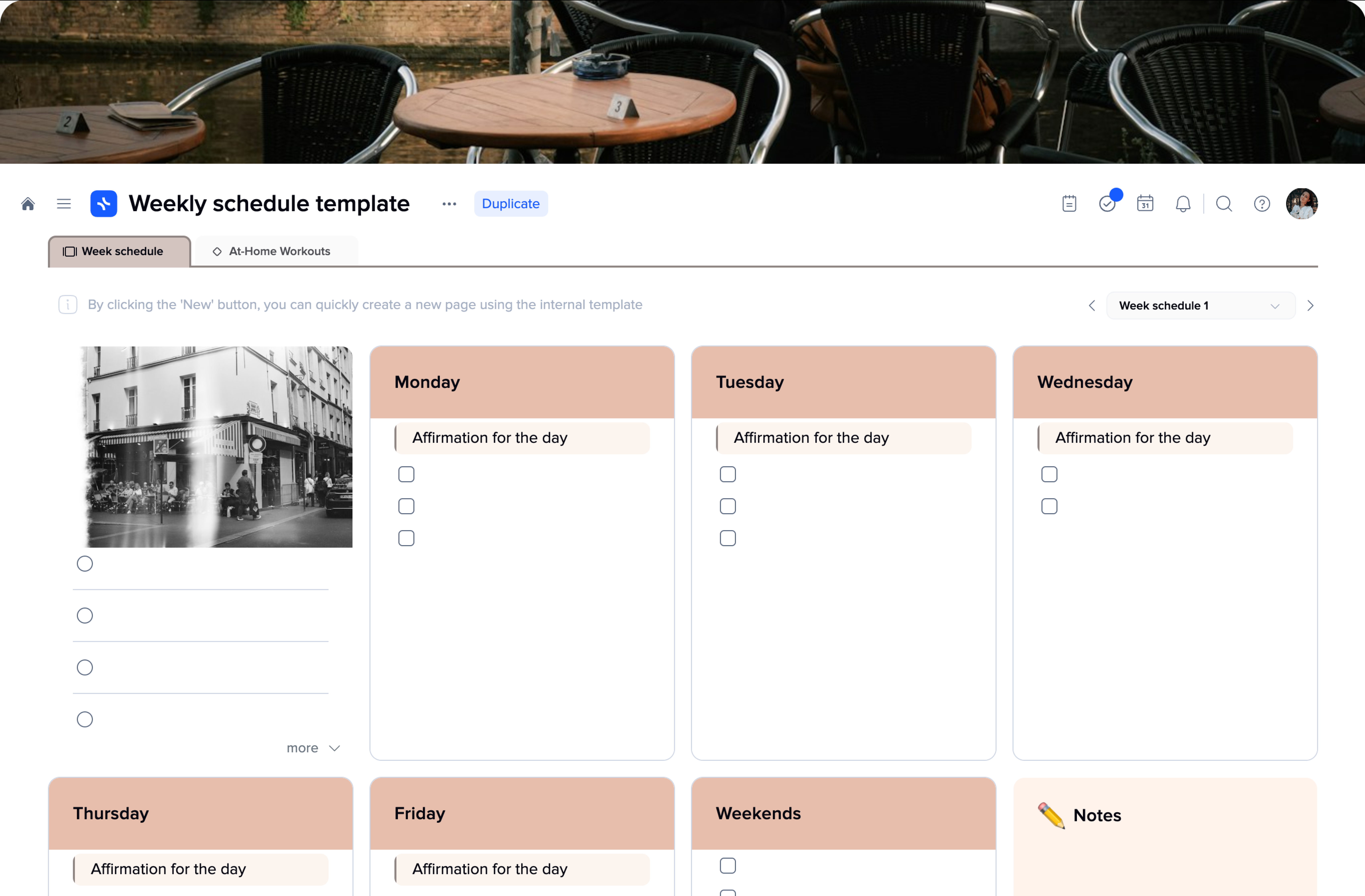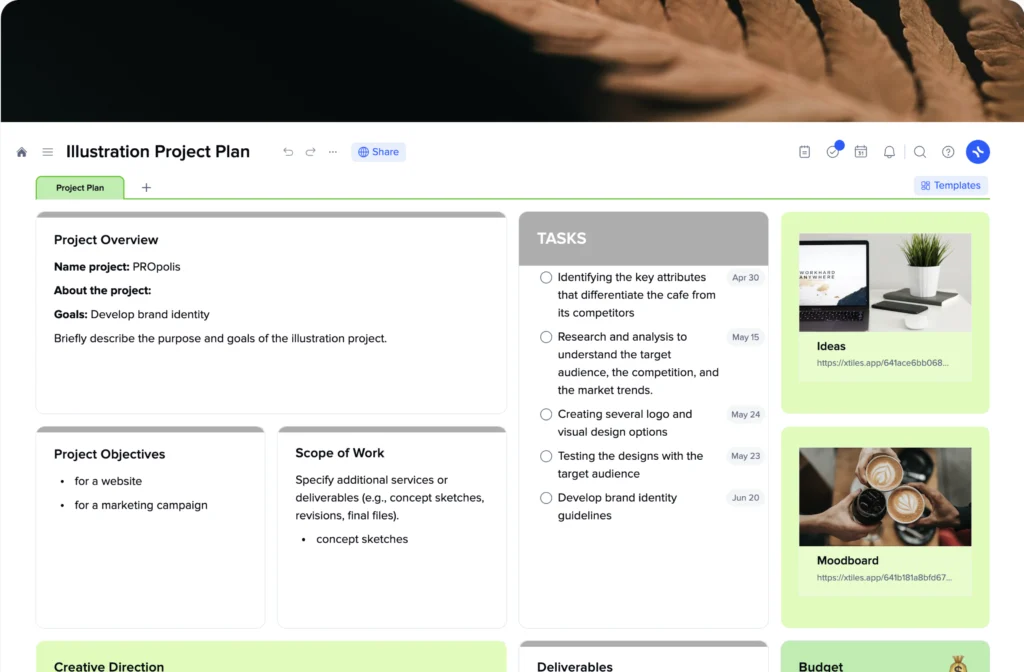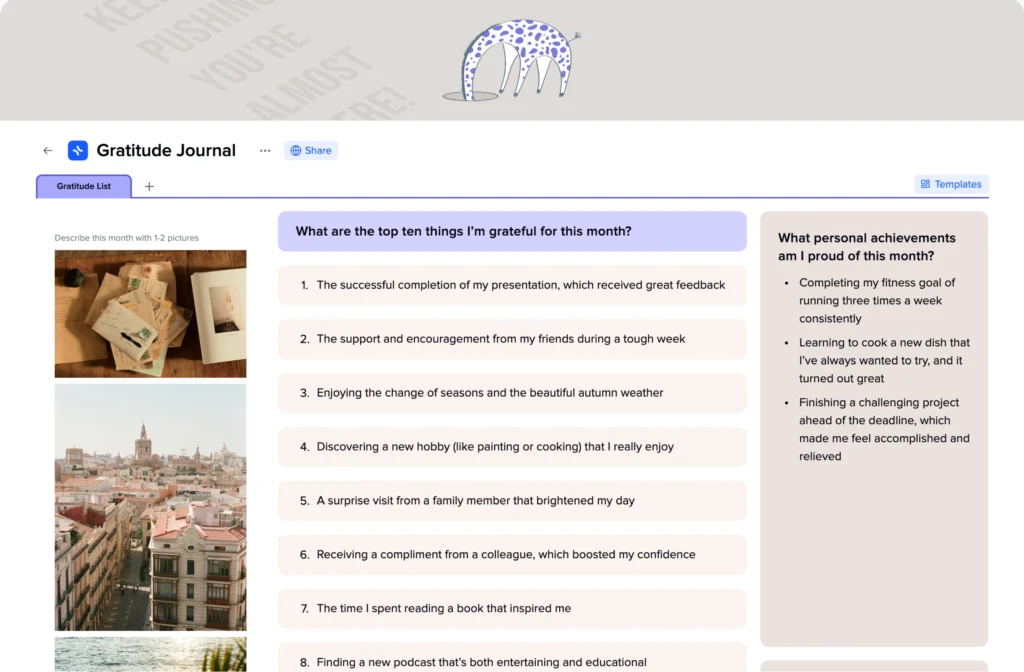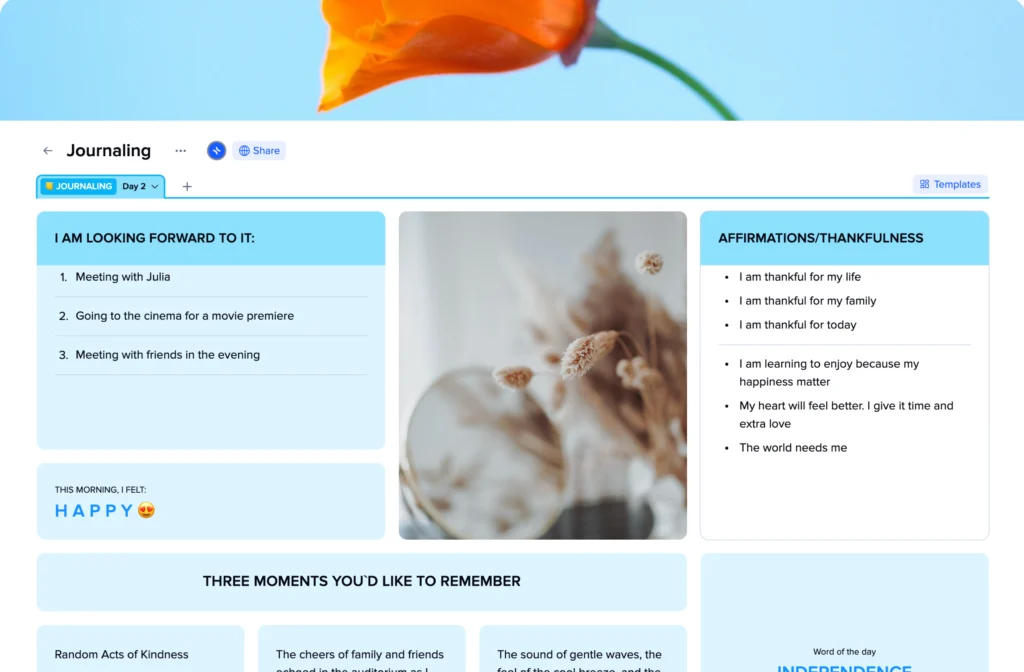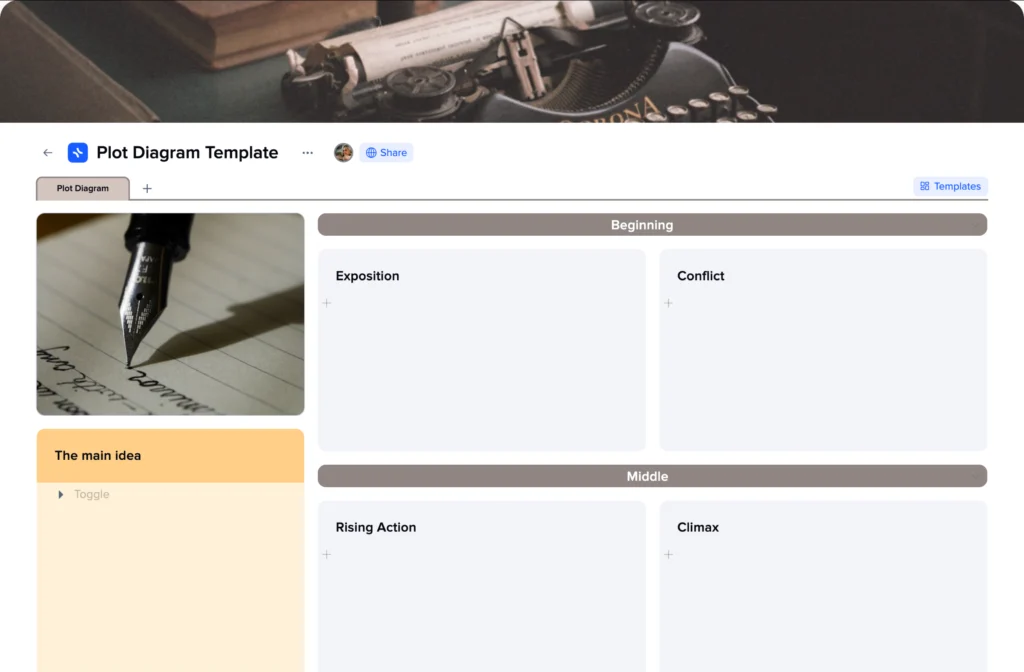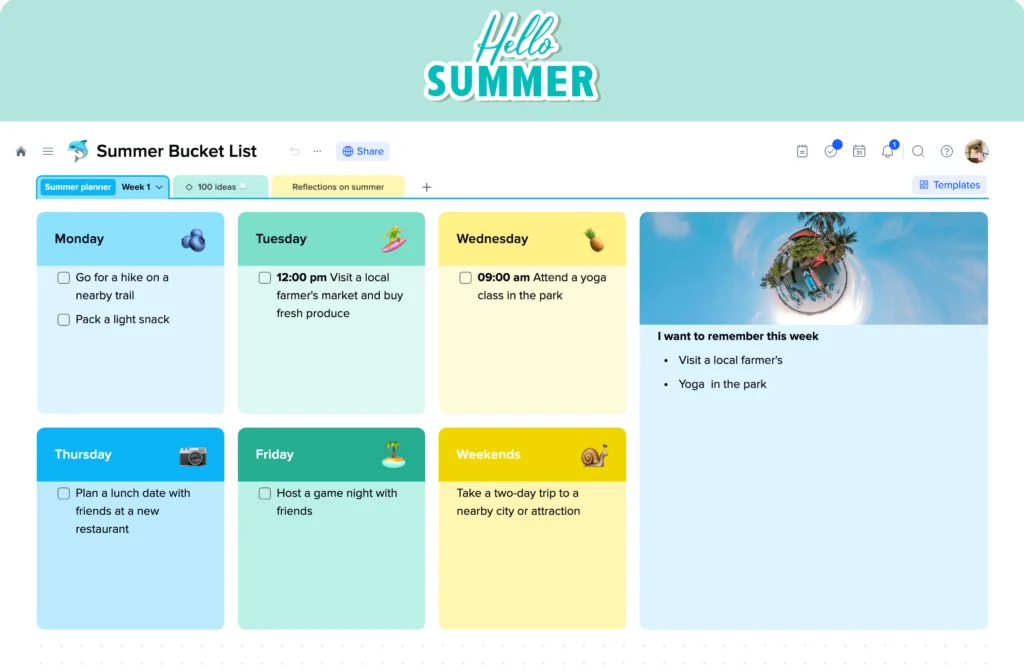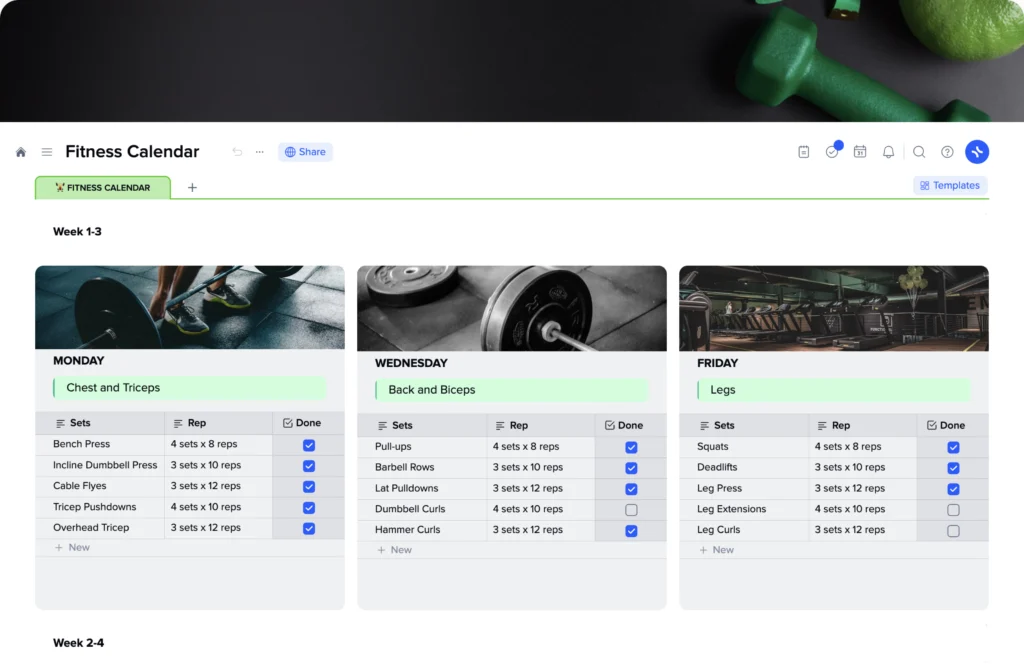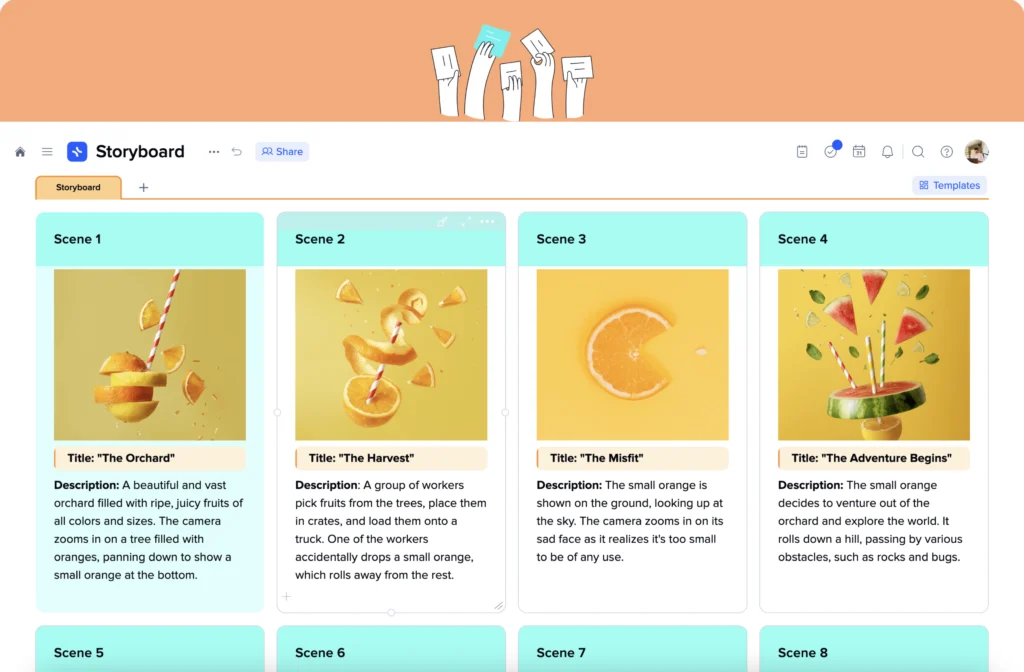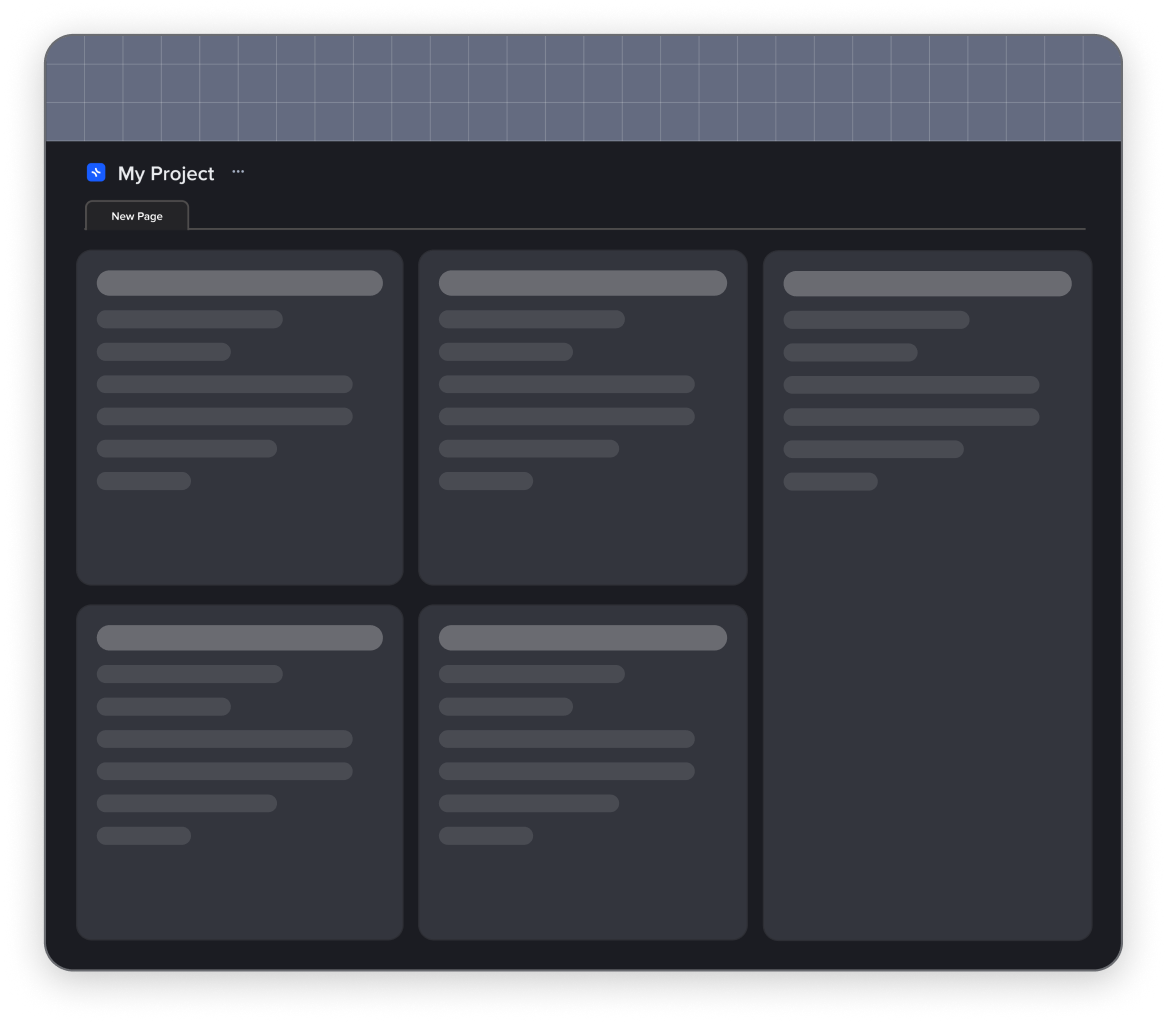Action plan template
An action project plan is the first step toward any goal, task, project, or dream coming true. In a nutshell, an action plan is a well-thoughtful plan of what you need to do to reach the desired result. It saves you from constant distractions from your main task, allowing you to concentrate all your energy and thoughts on what is important.
A plan of action is sometimes known as a roadmap, which is quite eloquent. When you’re in an unknown city, you rely on your GPRS to guide you from point A to point B. The same happens when you start something new. However, in this case, you’re the one who builds the route.
An organized plan for any goal, even the easiest ones, is like honest cheating. It’s your shortcut to winning the race. If a comprehensive action plan eases your task, a workable action plan template multiplies its effectiveness and saves even more of your time.
xTiles prepared an action plan template to shorten your way toward your goals and provide you with a helpful tool. Additionally, we offer you a guide on how to use it for your benefit.
What is an action plan, and why do I need it?
When that electric bulb appears near your head, what would be your first step to get it to happen? Rush to work as quickly as possible until the idea is alive and fresh? Postpone it when you have more time? Forget about it a few seconds later because you’re busy?
Many people don’t bother to write their ideas down to have a chance to return to them later, which is very sad. We’re bound to forget most of what we’ve thought about. Maybe one of those ideas could change the world for the better. Growing a habit of jotting down everything that pops into your mind, even crazy and bizarre things, will bring you only positive results.
An action plan definition is quite simple – it is a very detailed, firm list of what you need to do to achieve your goal. Usually, any goal consists of many separate steps if you analyze it. It’s easy to say, “I want this and that,” but it will be hard to reach them without understanding what hides behind these general things.
“Hold on,” you may say. But what makes an action plan different from a common to-do list? What is the purpose of an action plan if I can make a simple to-do list instead? Its detalization makes it different and more useful for easier and more consistent goals achievement. A well-known to-do list might not work or will be misleading for big projects.
An action project plan is also a collection of data about your project. All whats, whens, whys, and whos concerning your current goal. Depending on your preferences, you may include deadlines, resources you need, people responsible for separate tasks, etc.


